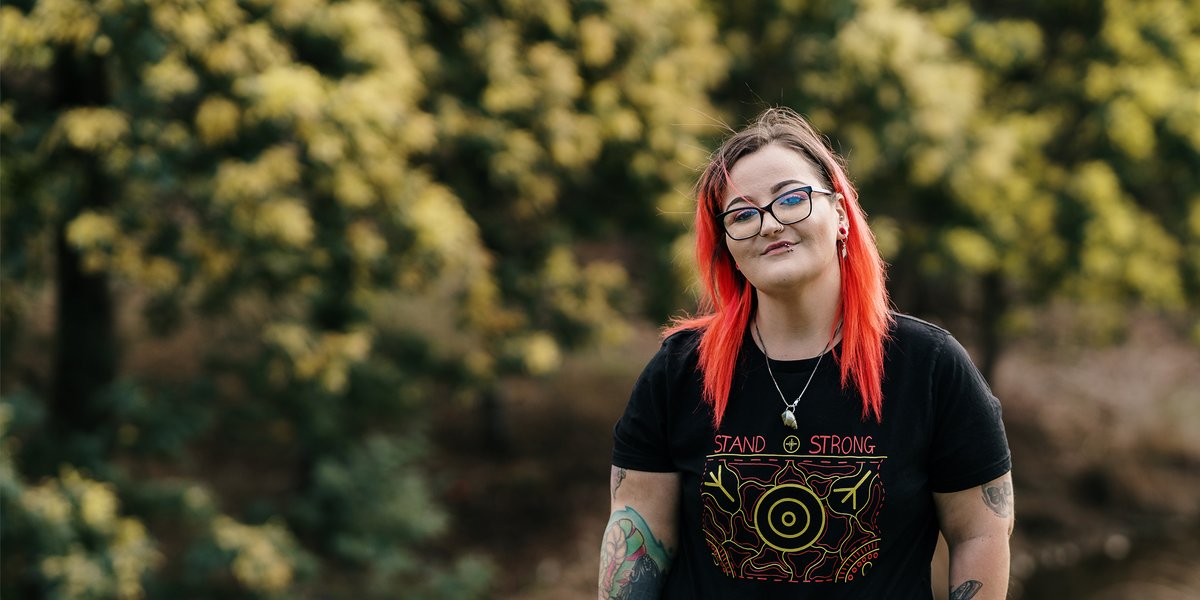Tom Windsor
"We were starting to understand a bit more about mental illness and how many people it affected. Movember gave us something real to put that passion towards. That's what we needed."
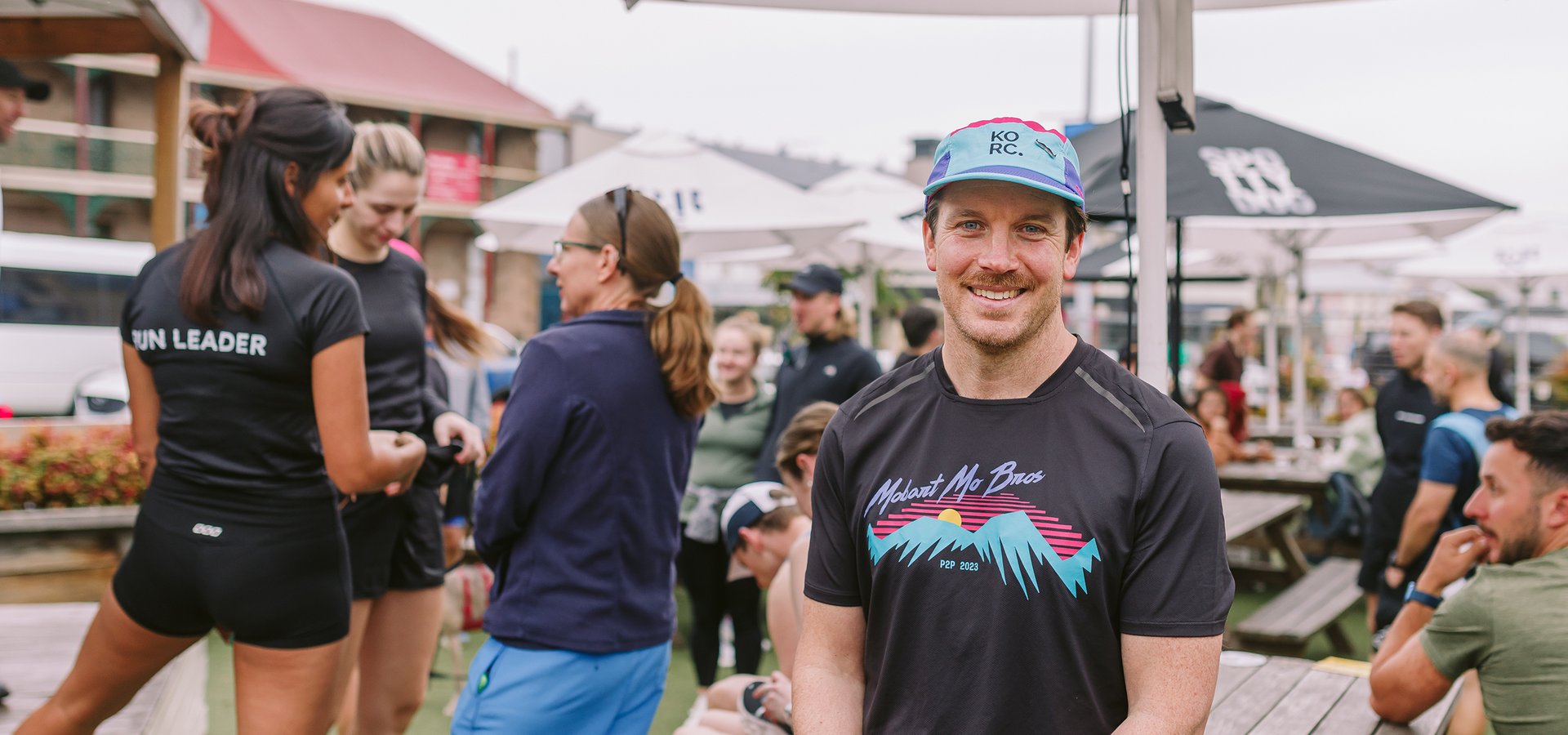
"It was an important time for me to grow up as a son, as a brother. As a man. We got through that time with a lot of help. We’ve had a pretty fortunate upbringing in relative terms, but to be able to talk about something like that positively is significant."
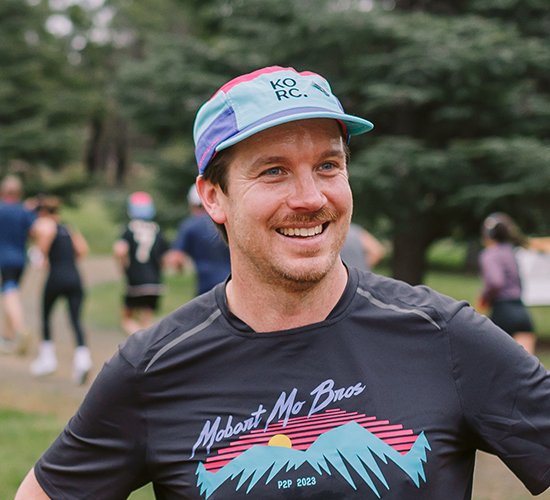
Content warning: This story deals with topics of suicide
Like plenty of people who live and work in a small place, Thomas Windsor wears many hats.
Unlike other figuratively hat-wearing people, for Thomas, each version has a slightly different name attached.
As Tom, he’s the managing director of Coverall Security and the president of Rural Alive and Well (RAW), a Tasmanian not-for-profit organisation focused on mental health support for rural and remote communities.
Tommy is captain of the Mobart Mo Bros—a Hobart-based Movember team raising money for men’s health every November.
To his family, he’s Dad.
“While there are different hats, the story probably started, yeah, just with one hat.” Tom laughs. “It's weird talking about yourself, isn't it?”
Tom grew up just south of Hobart, in a family that loved the outdoors. He spent his childhood camping, fishing, surfing, boating, and bushwalking. “I definitely didn’t appreciate that it was different, how special that was,” he says now. “It was just following Dad around a bit most weekends. I'll sit in the dinghy while he goes for a dive, and then he'll sit in the dinghy while I go for a surf, and I guess that's what we're doing again this weekend. And then you grow up and you go, 'Oh, not everyone did that.’”
As Tom grew older and travelled more, his appreciation for his home only grew, and he stayed in Tasmania through his early 20s to study at the University of Tasmania. “I really thrived. I was playing a lot of footy; I was really close to my footy club. It was those formative years, when you're thinking about bigger decisions, about what to do next, about growing up. It was a pivotal point in my life—and that coincided with the death of my dad.”
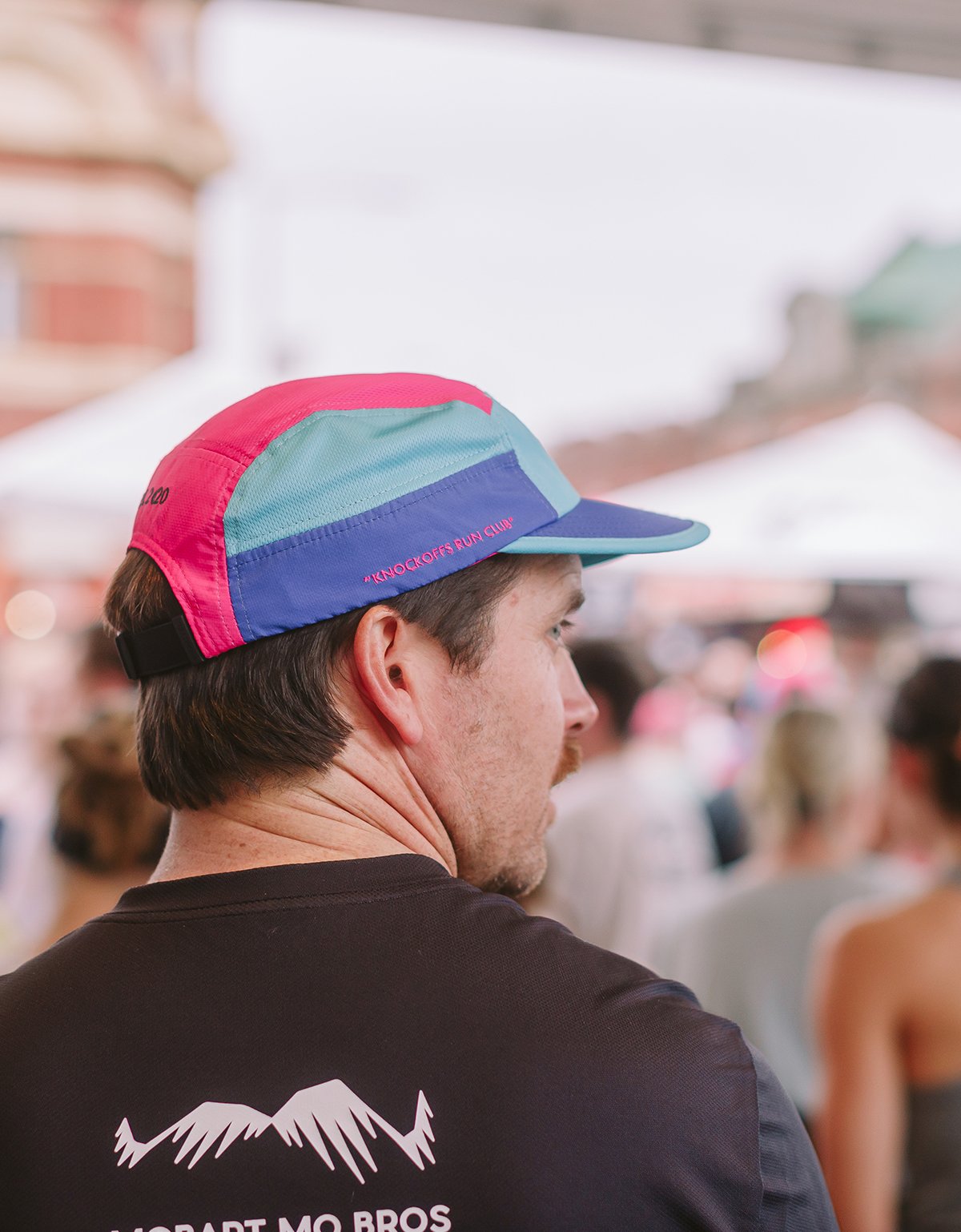
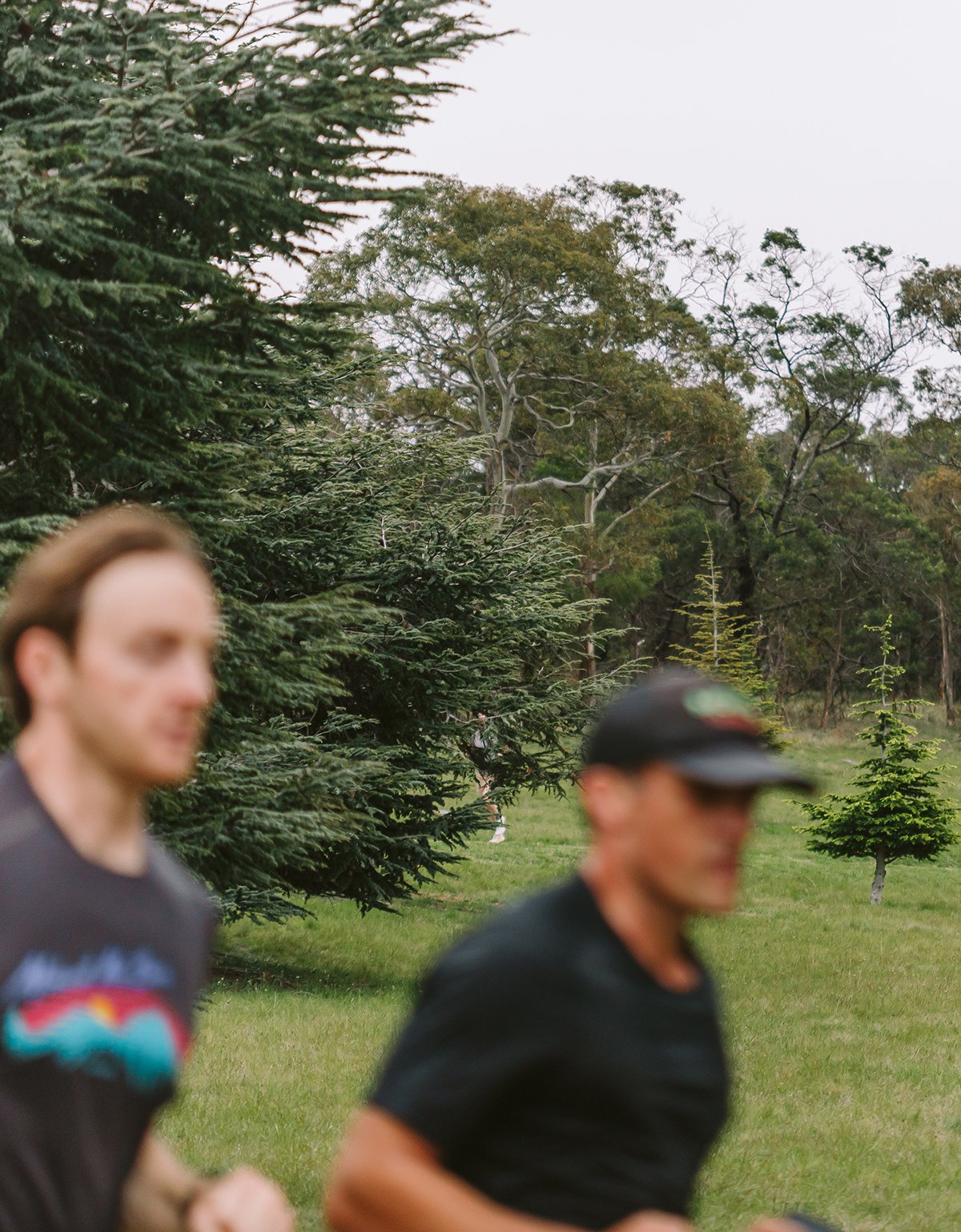
Tom’s dad lost his life to suicide, and it shocked not only their family, but the broader community. He was a physically fit, active person. He owned his own business. He was in his mid-50s.
“You hear this so often around suicide and mental illness, but he just wasn’t the type of person I'd grown up associating with that. He was very connected in his community. His death was a huge surprise,” Tom says now. “It was really challenging. I learnt a lot from it. But the flipside was having a community that showed up for you.”
There is a look of pride on Tom’s face as he describes his friends, with a trace of disbelief even after all these years. The people who had been there for the best of times also stuck around for the worst of times.
“These guys were just 20-year-old idiots,” he smiles. “I was like, ‘You're not meant to be here, you're meant to be off having fun.’ It was an important time for me to grow up as a son, as a brother. As a man. We got through that time with a lot of help. And that meant a lot to my family, too. We talk a lot about it—we’ve had a pretty fortunate upbringing in relative terms, but to be able to talk about something like that positively is significant.”
Tom calls it a superpower, the knowledge that you have support around you. The value of having known someone, and lost someone, and come through the other side. The support of his friends meant the world to him, and it didn’t falter even as time went on. They didn’t just show up; they stayed.
A year after Tom’s dad died, he and a friend founded the Mobart Mo Bros Movember team. During the month of November, those participating in Movember fundraise by growing a moustache, participating in a run, or hosting events. Donations go to programs that are dedicated to improving men’s mental health, and fighting prostate and testicular cancer.
“We were starting to understand a bit more about mental illness and suicide, and how many people it affected. Movember gave us something real to put that passion towards,” says Tom, who, at the time of writing, has started growing his mo’ for 2024. “It gave us a method to talk about a horrible thing, but through something positive and fun. That's what we needed.”
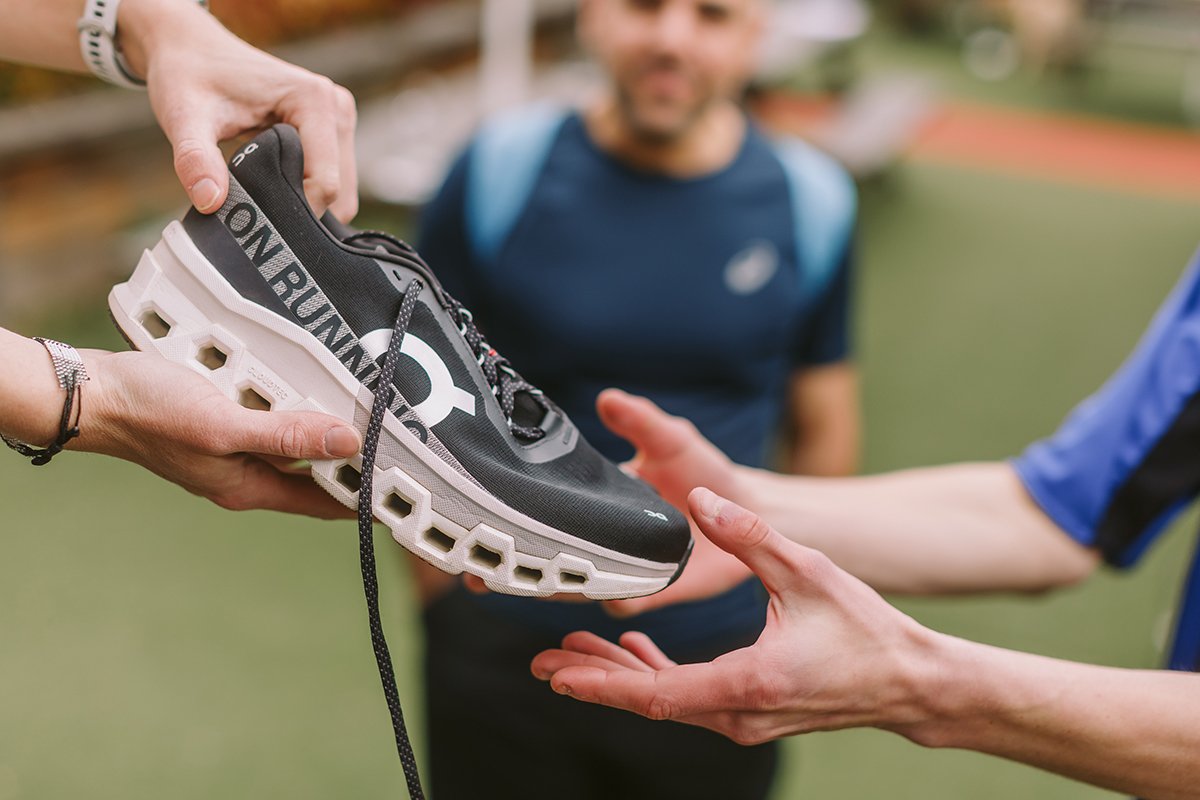
The Movember movement was just two years old when Tom and the Mobart Mo Bros joined the cause: a not-for-profit formed in Melbourne that was tentatively branching out elsewhere in Australia. Today, it’s the biggest men’s health charity in the world, with teams participating in over 28 countries. Through Movember, the Mobart Mo Bros have raised more than $1.2 million for men’s health.
“For a little social group who should have raised a few thousand bucks…” Tom muses. “As Tasmanians do, we batted well out of our crease and swung for the fences. We’ve been the highest fundraising Movember team in Australia for eight years. Against all of these other massive teams with corporate backing, this little social community group from Hobart just keeps on smashing it.”
The Mobart Mo Bros work with other local organisations on their fundraising efforts. For the last few years, they’ve joined forces with Knock Offs Run Club (KORC), a community running group in Hobart that hosts weekly runs for people of all ages and abilities. Together, they fundraise through the month of November, promoting the cause through runs each week and culminating in their main fundraising event: the Point to Pinnacle half marathon at the end of November.
KORC and the Mo Bros share the same values, about the importance of physical, mental, and social health. Everyone is welcome to participate, and many of the friends who join Tom at KORC and the Point to Pinnacle are those same people who showed up for him two decades ago and never left. “We know how important it is, particularly for men, to maintain those social connections,” he says. “We know that saves lives.”
As the Chair of RAW, Tom’s focus is strengthening the mental health of people working in primary industries in rural areas. A portion of the $1.2 million raised by the Mobart Mo Bros has gone directly into researching one of the most comprehensive sporting club mental health programs in the world—which RAW is helping to enable.
“It's called Ahead of the Game,” Tom explains. “They've partnered with the AFL, and we are facilitating this program in Tasmania, which the Mobart community funded. We're talking rural and regional areas where the footy club is the heart and soul of that community. It doesn’t just talk to the player. It talks to the coaches, who often end up being the support workers, the counsellors, the go-tos. It talks to trainers, parents, partners. Through institutions like footy clubs, you can change the whole resilience of that town.”
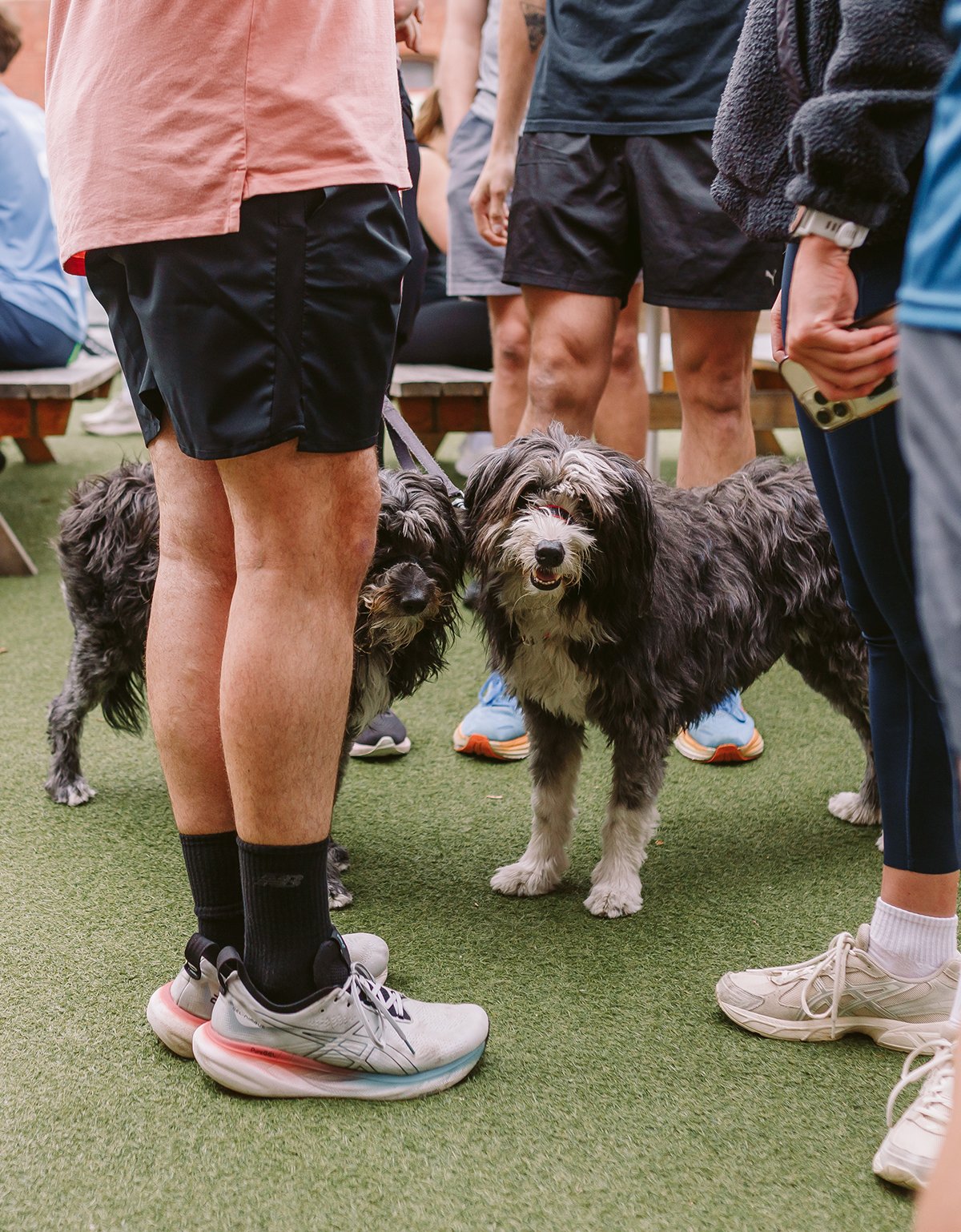
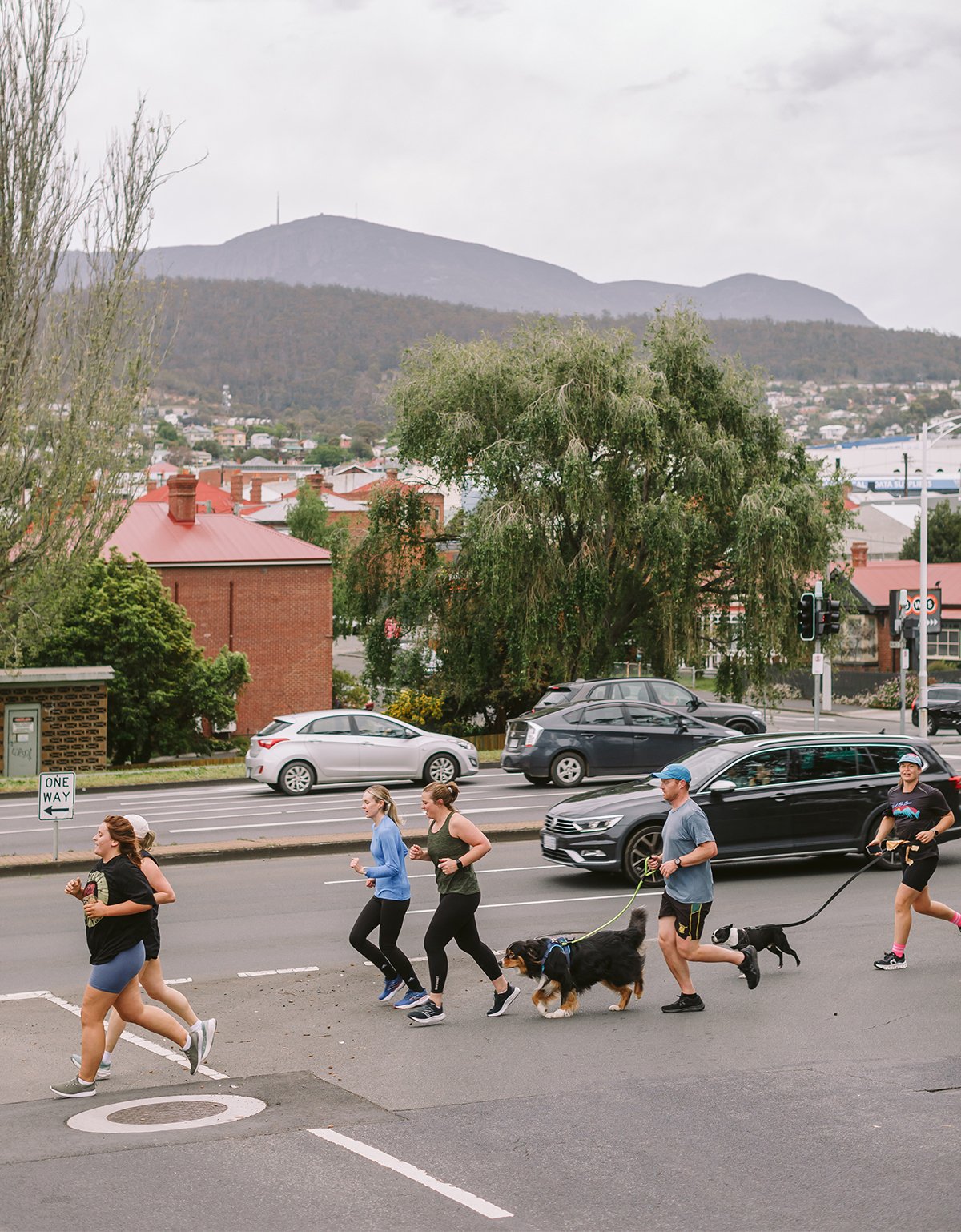
As Tom-Tommy-Dad sits in a Hobart café and reflects on his life, one could argue that those three hats aren’t so different from each other. Simply facets of one person who does many things, all of which are connected. Threads woven together to create something special, a web of support much like his own network. Tom says his partnership with his wife, Sannie, is at the centre of this network — the strength of their family unit is the pillar that holds everything together.
Tom has come to this café after a weekend of camping and swimming with his kids at Fortescue Bay. His kids are at an age where they’re beginning to grasp community, but don’t yet have that knowledge that Tom holds so dearly—the superpower of showing up, and what that can mean to those who need it. Tom can pinpoint the exact moment he learnt that lesson himself, but for his kids, it’s a gentle journey.
“It’s a hard thing to explain to someone so young, or even to anyone who hasn’t had to rely on mates to get through a tough time,” he says. “My wife and I are trying to teach our kids why we are turning up to walk 9km for a classmate, who's nine and has got cancer. ‘I've only met him a few times at school, Dad. How does walking 9kms help him?’ We explain the importance of turning up for your community and showing support. It shows his family that we're there for them. They’re not alone.”
Tom smiles to himself. “That's what connection is, isn't it? If you connect to a place, and the people, then you feel at home. You feel like you belong.”

We worked with southern Tasmanian photographers Studio Hubert for this Tasmanian story.
Read about more Tasmanians
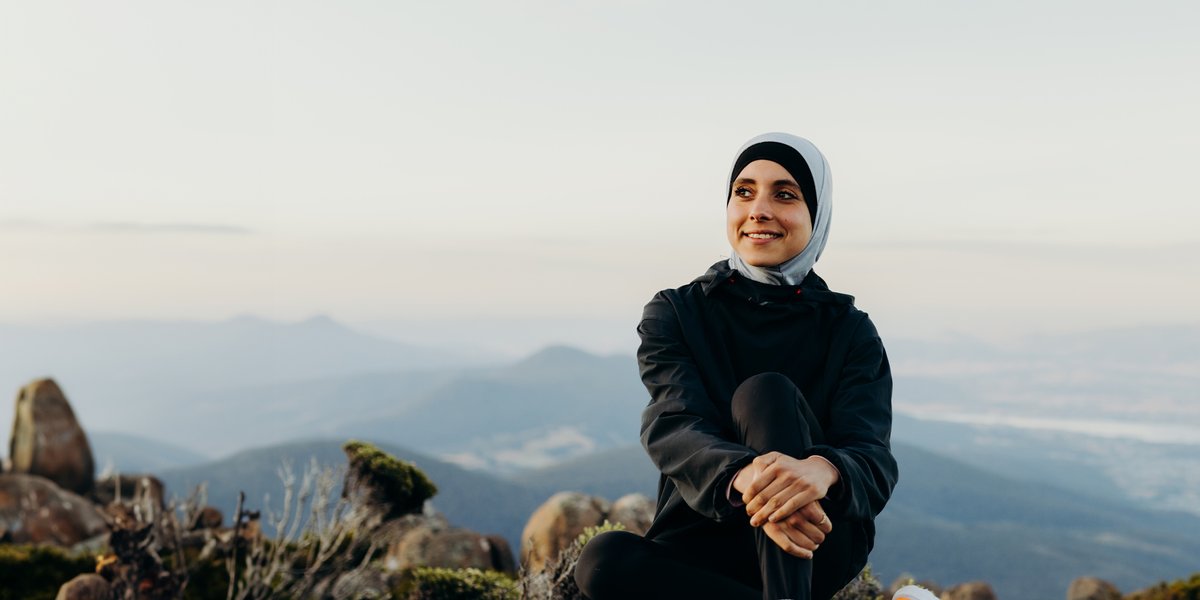
Merium Daoui
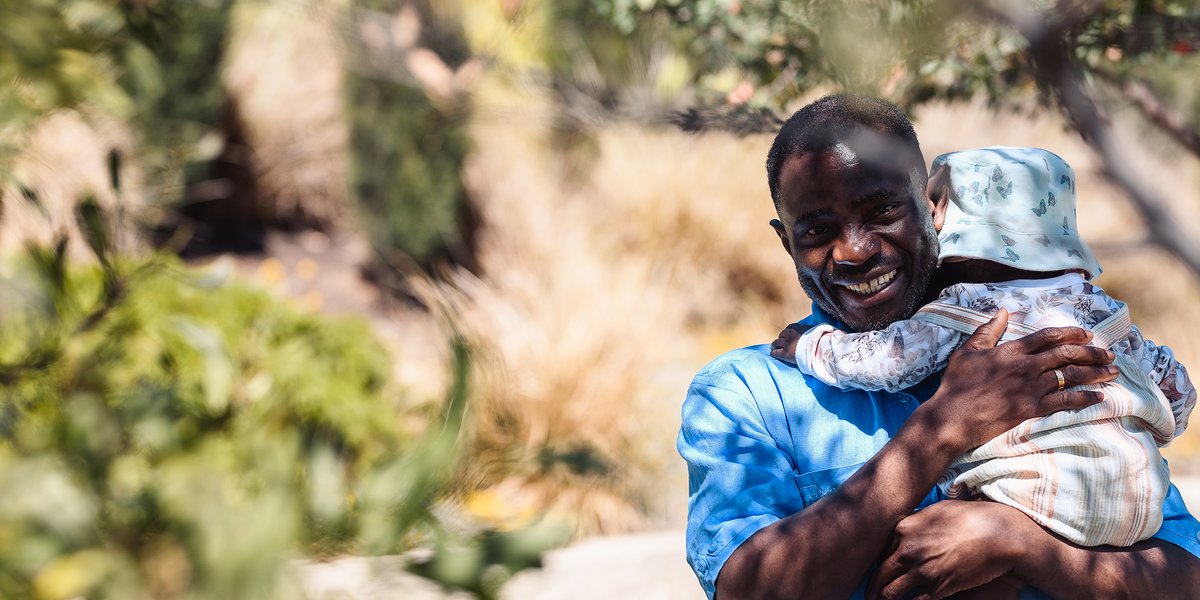
John Kamara
